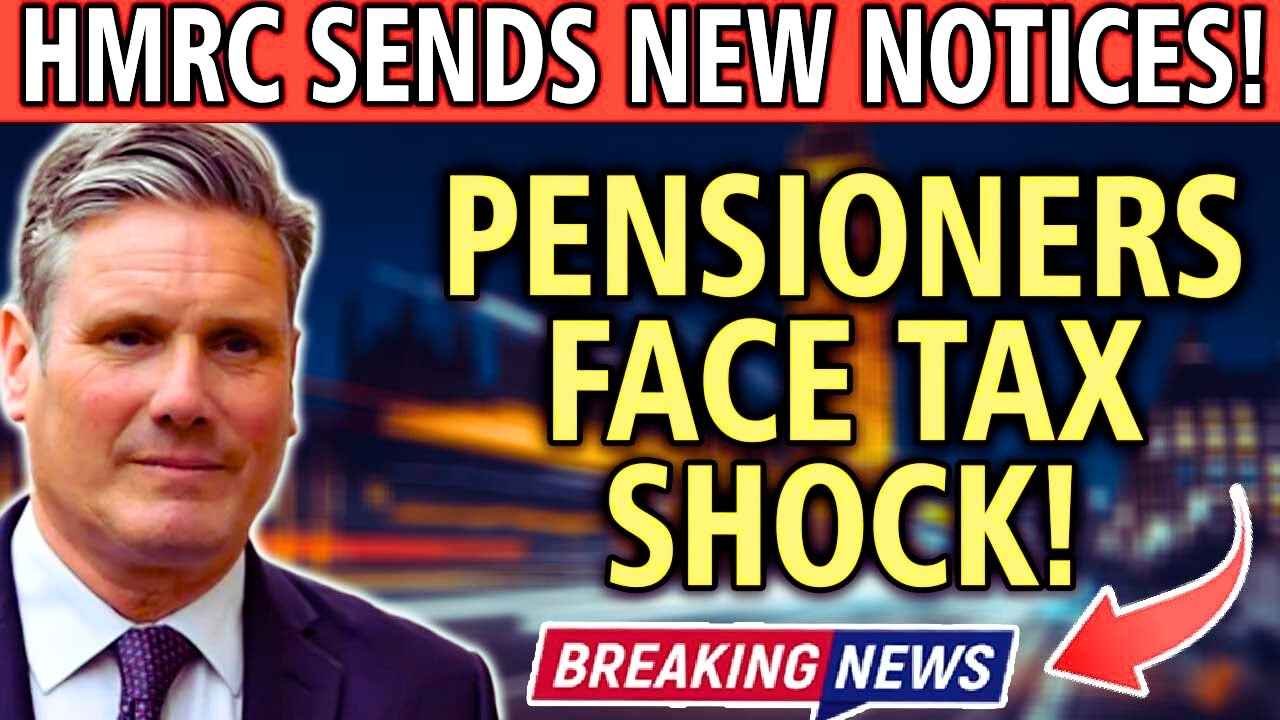Recent notices from HM Revenue and Customs (HMRC) have caused a stir among UK pensioners with savings exceeding £3,000. These notices aim to clarify tax obligations for those receiving pension income alongside savings interest. Many pensioners are confused about what these notices mean and how they affect their finances. This article breaks down the key points in simple terms, so you can understand what’s happening and what to do next.
Why Are Pensioners Getting These Notices?
HMRC has been reviewing pensioners’ income to ensure they pay the correct tax. If you have over £3,000 in savings, the interest earned might push your total income into a taxable bracket. Banks and building societies now report savings interest directly to HMRC, which helps them spot when someone’s income exceeds the tax-free allowance. For 2025, the personal allowance is £12,570, meaning any income above this could be taxed. These notices are HMRC’s way of checking if pensioners owe tax on their savings interest.
What’s in the Notices?
The notices typically explain how HMRC calculated your income, including your pension and any interest from savings. They might ask you to confirm details or pay additional tax if your savings interest pushes you over the tax-free threshold. Some pensioners have received letters requesting a self-assessment tax return, especially if their savings are substantial. If you’ve received one, don’t panic—it’s often just a routine check to ensure everything adds up.
How Does This Affect You?
If your total income, including pension and savings interest, is below £12,570, you likely won’t owe extra tax. However, if your savings generate significant interest, you might need to pay tax on the excess. For example, if you have £10,000 in savings with a 3% interest rate, you’d earn £300 in interest annually. If this, combined with your pension, exceeds the personal allowance, you’ll owe tax on the extra amount. The table below shows how savings interest can add up:
| Savings Amount | Interest Rate | Annual Interest |
|---|---|---|
| £3,000 | 3% | £90 |
| £10,000 | 3% | £300 |
| £20,000 | 3% | £600 |
What Should You Do Next?
If you get a notice, read it carefully and check the income figures HMRC provides. If they’re correct, follow any instructions, like completing a tax return or making a payment. If something looks wrong, contact HMRC’s helpline at 0300 200 3300. It’s also worth checking if you’re eligible for tax-free savings options, like ISAs, which can reduce your taxable income. Acting quickly ensures you avoid penalties or late fees.
Don’t Ignore the Notice
Ignoring an HMRC notice could lead to fines or a bigger tax bill later. If you’re unsure about the notice or how to respond, seek advice from a financial advisor or Citizens Advice. They can help you understand your situation and deal with HMRC. Most pensioners find these notices are straightforward once they understand the process, so there’s no need to worry just take action promptly.
This situation affects thousands of UK pensioners, but with clear information, it’s manageable. By checking your notice and taking the right steps, you can stay on top of your taxes and avoid surprises. Keep an eye on your savings and pension income to plan ahead for next year’s tax season.
